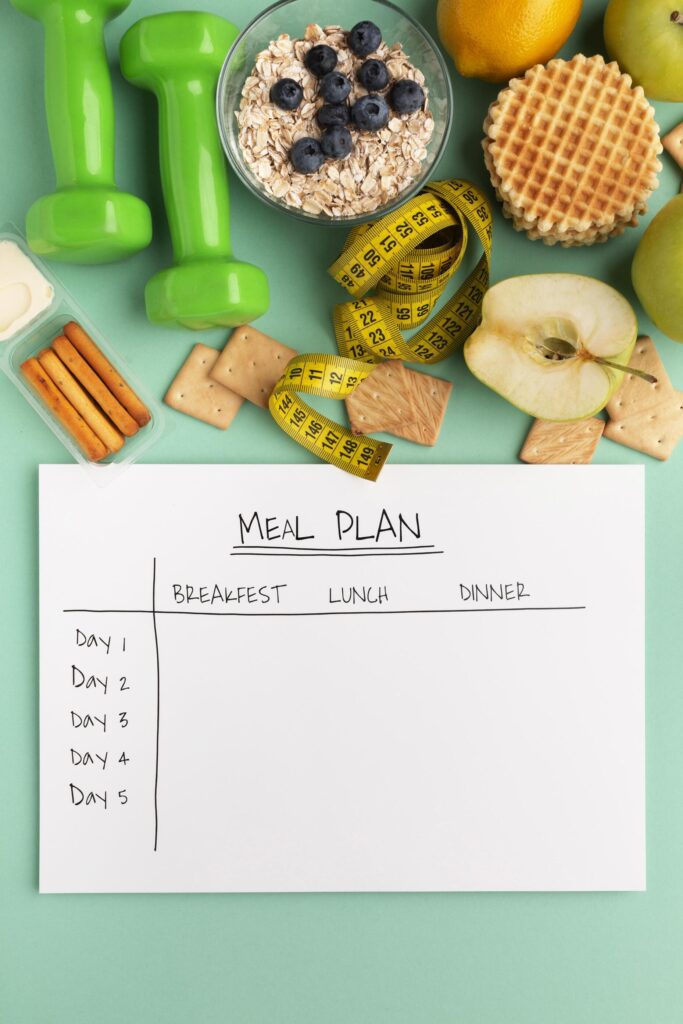Introduction
Losing fat isn’t just about eating less or moving more—it’s about doing both strategically and sustainably. The combination of a Fat Loss Diet and Exercise Program is your most effective path toward long-term results.
In this guide, we’ll walk you through:
- How to build a fat-loss-focused diet
- The best types of exercise for burning fat
- What to eat before and after workouts
- Common mistakes to avoid
Let’s break it down so you can get leaner, stronger, and healthier—without overcomplicating it.
Why Diet + Exercise Together Work Best
You can lose fat with diet alone or exercise alone—but combining both gives you:
- ⚡ Faster results
- 💪 Better body composition (more muscle, less fat)
- 🔋 Higher energy levels
- 📉 Improved metabolism
👉 According to the CDC, the safest and most effective fat loss comes from combining a reduced-calorie diet with increased physical activity.
Part 1: The Fat Loss Diet Basics
Fat loss begins in the kitchen. Here’s how to eat smarter—not less.
🥗 1. Create a Mild Calorie Deficit
Aim to eat 10–20% fewer calories than your body burns each day.
Use a TDEE calculator to estimate your needs.
🍳 2. Prioritize Protein
Protein preserves muscle while you’re losing fat.
👉 Aim for 1.2–2g per kg of body weight daily.
🌾 3. Choose Whole, Nutrient-Dense Foods
Focus on:
- Lean proteins: chicken, fish, tofu
- Complex carbs: oats, sweet potatoes, brown rice
- Healthy fats: avocado, olive oil, nuts
- Vegetables and fruits for fiber and micronutrients
Want a full list? Read our Top 10 Nutritional Tips for a Healthier You
💧 4. Stay Hydrated
Water aids fat metabolism and helps control appetite.
👉 2.5–3 liters/day is a solid goal.
Part 2: Best Exercises for Fat Loss
Exercise helps create a calorie deficit and builds lean mass, which burns more calories at rest.
🏋️ 1. Strength Training (3–4x/week)
Builds muscle and burns fat long-term. Focus on:
- Squats
- Push-ups
- Dumbbell or resistance band workouts
New to fitness? Check out our Beginner’s Fitness Routine Guide
🏃 2. Cardio (2–3x/week)
Helps burn calories and improve endurance. Good options:
- Brisk walking
- Jogging
- Cycling
- HIIT workouts
🧘 3. Active Recovery & Flexibility
Yoga or stretching 1–2x per week reduces soreness and prevents injury.
What to Eat Before and After Workouts
💡 Pre-Workout: Fuel your session
- Complex carb + lean protein
- Example: Oatmeal + Greek yogurt
💡 Post-Workout: Support recovery
- Protein + moderate carb
- Example: Grilled chicken + sweet potato
Want the full breakdown? See our article:
👉 What to Eat Before and After a Workout

Sample Fat Loss Daily Plan (Beginner)
| Time | Meal |
|---|---|
| 8:00 AM | Oats + boiled eggs + berries |
| 11:00 AM | Protein shake or Greek yogurt |
| 1:00 PM | Chicken + quinoa + vegetables |
| 4:00 PM | Banana + peanut butter (pre-workout) |
| 6:00 PM | Strength workout + water |
| 7:00 PM | Protein smoothie (post-workout) |
| 8:30 PM | Stir-fry tofu + broccoli |
Common Fat Loss Mistakes to Avoid
- ❌ Over-restricting calories (slows metabolism)
- ❌ Skipping strength training (you’ll lose muscle, not just fat)
- ❌ Drinking your calories (sodas, fancy coffees)
- ❌ Inconsistency with workouts or meals
- ❌ Expecting results in a week—fat loss takes time
Conclusion
The most effective fat loss plan doesn’t involve extremes—it involves consistency.
Pairing a balanced diet with sustainable exercise helps you lose fat while keeping your energy, strength, and motivation high.
Start small. Track your habits. Be patient.
And most importantly—fuel your body, don’t punish it.



